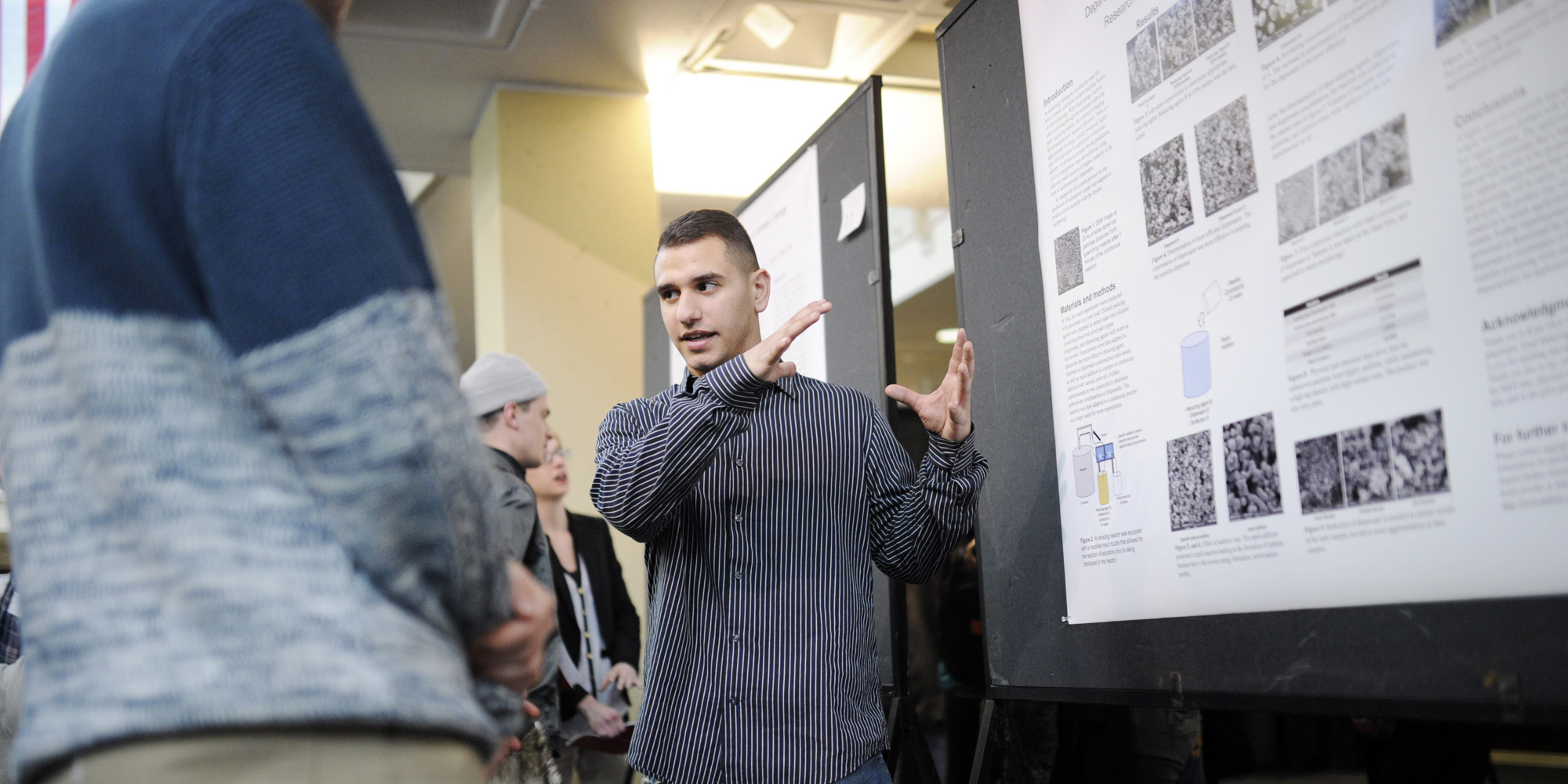by Greg St. Martin
Senior and marine biology major Lauren Josephs, S’15, spent her co-op last year in the coastal landscape management field, meeting with waterfront homeowners to discuss issues related to protecting and restoring coastal ecosystems.
Josephs, who has participated in Northeastern’s Three Seas Program, landed her co-op with postdoctoral researcher Steven Scyphers, who works at the university’s Marine Science Center in Nahant, Massachusetts. Josephs collaborated with Scyphers on research that involved surveying homeowners in Rhode Island and Alabama to better understand how their values and beliefs relate to their treatment of their shorelines.
“What we’re trying to do is get a cohesive picture of how these two systems—humans and their environment—interact with each other,” Josephs explained. “Understanding this dynamic is important to environmental management and policy, and it’s critical to bring waterfront residents into the restoration process.”
Josephs was among some two dozen students who discussed their co-op experiences from the July to December 2014 cycle at the annual College of Science Co-op Expo held in the Curry Student Center Indoor Quad on Feb. 27. The students worked at a range of co-op employers, from pharmaceutical companies and research institutes to laboratories at Northeastern, in the Boston area, and across the globe.
Rebecca Arcidiacono’s co-op meshed her academic pursuits and personal interests. She traveled abroad to work with the Music, Mind, and Brain research group at Goldsmiths, University of London, where she contributed to a study examining the relationship between emotions, music, and the commercial effectiveness of TV advertisements. The research focused on measuring how electrodermal activity, or activity in the sweat glands, can be used to quantify emotional arousal.
Arcidiacono, S’16, is a fourth-year psychology major and is pursuing minors in both behavioral neuroscience and business. Her co-op involved analyzing data for the project.
“This co-op really spoke to me because I’ve always had a passion for music, particularly the psychology of music,” she explained. “It was a really good combination of my academic and personal interests, and it worked out incredibly well.”
SEE MORE PHOTOS – CLICK HERE TO SEE POSTER WINNERS
Third-year chemistry major Davis Sawyer, S’17, worked on co-op in Houston at Blade Energy Partners, an independent consulting company that focuses on projects in the energy industry and has expertise in drilling across the oil and gas and geothermal industries. Sawyer was tasked with building a database of materials used in a variety of drilling projects. But he took on other roles too, including performing statistical analysis as part of a quality control project to determine whether a new steel alloy was sustainable for use in building deep oil wells, which must withstand varying temperatures, pressures, and other conditions.
Sawyer said the co-op piqued his interest in the oil and gas industry. “I love the pace and the intensity, and the way people focused on solving problems and making progress,” said Sawyer, who noted that the experiential learning opportunity showed him the value of using Big Data analytics to bring a technology to market.
Fourth-year chemistry major Hope Ianiri, S’16, worked from July to December 2014 at the Woods Hole Oceanographic Institute in Massachusetts, where she spent six months analyzing sediment samples for new and existing biomarkers of climate change. Biomarkers, she explained, are measurable substances released by organisms in response to their surroundings, and the concentration of these biomarkers is preserved in sediment cores and can be used to determine past climate conditions. Knowing how variables like sea surface temperature or pH have changed over time can help researchers create models that can predict future changes.
The experience solidified her academic goal to pursue a doctorate in environmental or marine chemistry. “I realized I loved being in a lab and having the independence that comes with doing your own research,” she said. “I want to do research for a living.”
Originally published in news@Northeastern on March 20, 2015.

